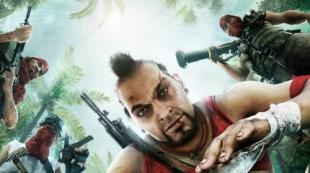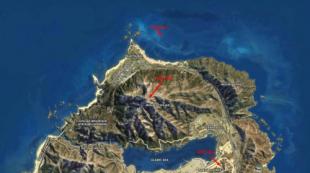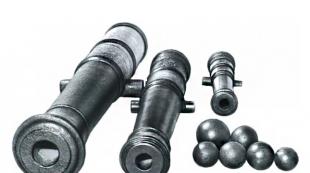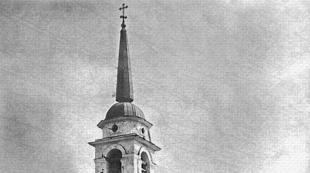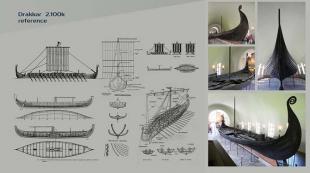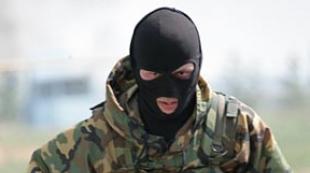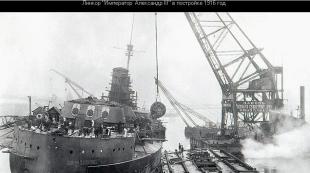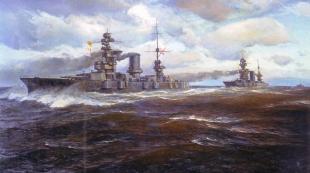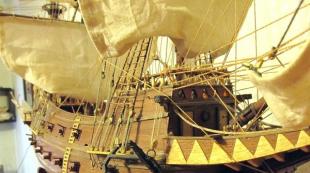Prince Enrique the Navigator: biography and discoveries. Heinrich (Enrique) Navigator, Biography, life story, creativity, writers, ZhZL What did Heinrich the Navigator
Famous travelers Sklyarenko Valentina Markovna
Henry the Navigator (1394 - 1460)
Henry the Navigator
(1394 - 1460)
... he sought to find out the lands that lay behind the Canary Islands and behind the cape called Bojador, because until then no one - either from written sources or from human memory - probably knew anything about the land lying behind this cape.
Gomes Eannish de Azurara. "Description of travels around Cape Bojador"
Portuguese prince, organizer of sea expeditions to the northwestern coast of Africa. He laid the foundation for the Portuguese expansion to this mainland, which opened the way to India. Duke of Viseu. Ruler of the Algarve. Master of the Order of Christ.
One of the most significant figures of the pre-initial period of the Age of Discovery can rightly be considered the Portuguese Prince Enrique, who went down in history under the name of Henry the Navigator. Such a nickname, given to a man who has never made a single sea voyage, could hardly be considered deserved if it were not for his unique contribution to the development of marine research, which resulted in the discovery of the entire northwestern coast of Africa and the entry of Portugal to the forefront of the colonial expansion through geographical discoveries.
Obviously, it was thanks to his efforts that Portugal was the first European country to purposefully carry out sea expeditions to establish trade relations with African and Asian countries, as well as to search for new routes to India, where spices, popular in Europe and bringing huge profits, grew in abundance.
The third son of the Portuguese King John the Great and Philippa of Lancaster was born on March 4, 1394. As a boy, he heard stories and legends about wars with the Moors and mysterious Africa. At that time, only its northern part was known to Europeans, but even this was enough for the prince to have a great interest in the lands lying south of Europe.
In 1415, the young man took part in the siege of the Moroccan fortress of Ceuta, where he showed outstanding courage. With a handful of men, he twice dispersed the crowds of the Muslims, and finally succeeded in capturing the gates of the inner wall between the lower city and the citadel. The king decided that for the valor shown, Enrique would be the first of his sons to be knighted. But the prince asked that "those who are older than him may exercise their right to be first in honor as well." As a result, all princes were knighted in order of birth. In their hands they held swords, which the queen handed them on her deathbed, escorting her sons to battle.
Before Enrique opened the possibility of an easy and pleasant life at the court of any of the European sovereigns, where he would spend time among pleasures in a crowd of countless admirers. So did his brother Pedro, later nicknamed the Traveler, although all his travels were mostly limited to the royal courts. However, Enrique chose to lead the life of a scientist and travel organizer for the benefit of Portugal.
Clearly understanding the importance of scientific knowledge, on Cape Sagres (modern San Vicente) in the province of Algarve, the extreme southwestern point of Portugal and all of Europe, the prince built a palace. Soon a whole city grew up around him, in honor of the Infante Enrique, called Vila do Infante. Through the efforts of Prince Pedro, who collected travel books and maps from all over Europe for his brother, a library was created here. With the help of the Italians - the best sailors of that time - the prince set up an astronomical observatory, as well as the world's first school of navigation and a naval arsenal. Here he invited scientists, astronomers, navigators, experts in navigational instruments. The most accurate maps for that time were compiled here.
Enrique lived on Sagres for forty years, until his death, and during this time he was only twice distracted by solving the political problems of Portugal, although he enjoyed the reputation of a judge in national disputes, a people's leader and teacher. He devoted all his time to research. He himself drew maps, made instruments, equipped ships, received reports from captains.
Describing the personal qualities of the Portuguese prince, one should emphasize the difficulties that he had to face as the organizer of expeditions into the unknown.
At that time, it was believed that the western coast of Africa was inaccessible to researchers: it was assumed that the capes of Non (“No” - “There is no further way”) or Bojador (“Convex”) were the boundaries of the known world, and that they were supposedly guarded by sea currents and winds, which will certainly carry the ships far from the coast to the "Sea of Green Gloom", from where there is no return. The tropical zone was also considered unsuitable for life, where the sun burns all living things, and people, when approaching this zone, turn black or die from the heat.
Despite this, Enrique encouraged researchers in every possible way to overcome imaginary and real obstacles and achieved significant results in this, acting in the most difficult initial period of the Portuguese expansion, which the country owed to him.
The struggle of the Christian states of the Iberian Peninsula with the Moors, obviously, influenced the strategy and tactics of the prince's actions. Being by the decision of the pope since 1420 the Grand Master (Master) of the Order of Christ, who fought against Moorish influence and the spread of Christianity, he initially sought to establish ties with the state of "Priest King John" in order to join forces in the fight against Islam. According to the then ideas, it should have been sought in the "African India" - Ethiopia. In addition, during the war with the Moors in 1415, the prince in Morocco collected some information about Inner Africa, including the gold trade between the inhabitants of the Guinean coast and the Arabs. The victory of the Portuguese in the struggle for gold promised obvious benefits. According to Enrique, beyond the Gold Coast lay the path to India, where Portugal could acquire vast possessions. Thus, Africa became the place that Enrique intended to explore first.
In 1412 or 1416 the first expedition was sent to survey the western coast of Morocco. The ships reached Cape Bojador, but returned, frightened by the inconstancy of currents, winds and shoals, believing all this to be the machinations of storm demons. However, in 1434, Gilles Eannish, sent by the prince, overcame the terrible cape and returned with the news that sailing was possible behind it. As a gift to the prince, he brought roses, which served as proof that the country beyond the cape was not devoid of vegetation. In the next two years, Enrique's cupbearer, Baldaia, advanced another 290 miles to the south.
However, in 1437 the travels were interrupted by the war against Tangier. Enrique led the Portuguese army, but, despite his valor, he could not take the well-fortified city. Moreover, the younger brother of the prince, Fernando, remained in the hands of the Moors as a hostage. The enemy demanded in exchange for his freedom to return the city of Ceuta. Enrique himself wanted to stay with the Moors, but the army, which saw him as the only support, opposed, and the prince, reluctantly, was forced to retreat. All his further attempts to free his brother came to nothing. The Portuguese could not afford the loss of Ceuta and chose to give up the prince. Fernando died in captivity in 1443.
Finally, affairs in the state allowed Enrique to return to Sagres. In 1441, voyages were resumed and since then they have been made regularly. Their result was the exploration of the entire northwestern coast of Africa, including the discovery of the mouth of Senegal and Cape Verde, which became the greatest surprise of that time. It was believed that there could be no vegetation on both sides of the equator due to the high temperature. Therefore, the meager vegetation of the cape, which stood out favorably against the backdrop of deserts, aroused hope for the proximity of the southern tip of the continent. With redoubled energy, the captains, directed by the prince, rushed in search of her. However, Enrique was not destined to wait for this discovery. He died on November 13, 1460 in the palace he created on Sagres and was buried in the monastery of St. Mary da Batalha.
In the history of civilization, Henry the Navigator is also known from a negative point of view. In 1442, he approved the actions of Antan Goncalves, who first brought Negro slaves from Rio de Oro, and thereby became the initiator of the slave trade. However, here, too, he was guided by noble motives, believing that blacks should be brought to Portugal only for a while, to convert to Christianity, and then returned to their homeland. Nevertheless, the results of these considerations cast a shadow on his name, but allowed Portugal to acquire the right granted by Pope Eugene IV to pagan lands discovered during travels beyond Cape Bojador, including India. To a large extent, this, as well as the discovery of a gold deposit on the African coast, contributed to the revival of the Portuguese sea voyages in the 15th century.
In the year of Enrique's death, almost thirty years remained before the travel of Bartolomeo Diaz, who circumnavigated Africa from the south in 1488. But both it and the discovery of the sea route to India by Vasco da Gama, which gave a powerful impetus to the exploration of the planet, would have been impossible without the enormous work of Henry the Navigator, whose mind and will drove the Portuguese captains farther and farther south to unknown shores.
In Portugal, the memory of the prince is sacred. Back in the 18th century at the gates of his fortress-palace on Sagres, a marble monument was erected with the image of the Portuguese coat of arms, a caravel going in full sail and a globe with the inscription: "Aeternum sacrum" ("Forever sacred").
This text is an introductory piece. From the book of 100 great geographical discoveries author Balandin Rudolf Konstantinovich From the book History of France through the eyes of San Antonio, or Berurier through the centuries the author Dar Frederic From the book Sea Route to India author Hart HenryCHAPTER TWO. PRINCE HEINRICH THE NAVIGator Through waters hitherto unknown to us Camões, The Lusiades, I, 1 The man to whom, more than anyone else, Europe owes the development of navigational science, and Portugal - the systematic expansion of sea expeditions, is the Infante
From the book French Wolf - Queen of England. Isabel author Weir Alison1394 Fried: "Tyranny".
From the book of 100 great aristocrats author Lubchenkov Yury NikolaevichHEINRICH (ENRIQUE) THE NAVIGator (1394-1460) Portuguese prince. The ruling house of Portugal dates back to the Capetian dynasty, more precisely, from its first Burgundian branch. The first count of Portugal, Henry (Enrique), conquered the county in the fight against the Moors in 1095. He was the grandson
From the book Fatal Self-Deception: Stalin and the German Attack on the Soviet Union author Gorodetsky Gabriel From the book Stalin's Engineers: Life Between Technology and Terror in the 1930s author Suzanne ShattenbergWhen they talk about the era of great geographical discoveries, his name is remembered last. Although, thanks to the efforts of this romantic long-distance voyage and a fanatical crusader warrior, Portugal began the colonial seizure of Africa, and black slaves were first brought to Europe. But the organizer of these trips himself went to sea only three times in his entire life and no further than 200 miles. And yet, the Portuguese Prince Henry deservedly bore the proud nickname "navigator".
Infante Heinrich or Enrique, born in 1394, was the son of King João I of Portugal and Philippe of Lancaster, who brought the tradition of British chivalry to the country. Enrique and his brothers were taught the seven knightly virtues - writing poetry, riding, fencing, playing checkers, hunting and swimming, but most of all the young man was interested in owning a spear, although he did not neglect the study of natural sciences and theology. Chivalry as a military and religious service determined the whole subsequent life of Henry. At the age of 21, he initiated the capture of the Moorish fortress in northern Africa.
Only 150 miles - such was the length of the first sea voyage, the future inspirer of the Portuguese sea conquests.
The defense of Ceuta, a new outpost of the Portuguese on the African coast, was entrusted by the king to Infante Henry. To do this, part of the income of the treasury passed into the complete and uncontrolled conduct of the prince, and after 5 years the prince became the Grand Master of the Order of the Cross.
Now, in the hands of the navigator, enormous power was concentrated: spiritual, military and financial. And Prince Henry disposed of this power in the best way for Portugal. From freed Christian slaves, he learned about the caravans that transported gold from the coast of Guinea through the African desert to the Muslim ports of the Mediterranean. Known in geography, the prince decided that Guinea could be reached by sea, then the treasures taken from the infidels could be taken to Lisbon. In addition, bypassing Muslim territories from the south, one can reach Christian Ethiopia and begin profitable trade with it, and then reach India itself by sea.
Scientific curiosity, reinforced by accurate geographical maps found in Ceuta, was mixed with the Infante's conquest plans. And when Henry's brother Prince Pedro brought from Venice the manuscript of the already famous traveler Marco Polo, the Infante firmly decided that the lands lie south of Ceuta.
Prince Henry took up the organization of sea expeditions to the northwestern coast of Africa. At the insistence of the prince, in 1431 astronomy and mathematics were included in the program of the University of Lisbon. In 1438, near Cape St. Vincent, in the fortress of Sagres, Prince Henry organized an observatory and a nautical school, Villa de Infante. Prominent scientists, astronomers, cartographers and navigators from all over Europe were invited there, and the navigator prince participated in discussions along with scientists. Everyone worthy was admitted to the school, regardless of class, religious and ethnic differences, which was unusual for Catholic Portugal in the 15th century.
Through the efforts of the prince, the nautical school of Villa de Infanta became the first scientific center in European history. A huge wind rose 43 meters in diameter is still preserved in the fortress - a diagram of long-term observations of the direction and strength of the wind. Inspired by the support of the prince, the captains of the Portuguese caravels discovered the island of Madeira in 1418. At the same time, the navigator began to explore new lands and soon the first settlers appeared in Madeira, and wine began to be delivered to the Metropolis - a rare quality even for wine-growing Portugal.
Then, for decades, Henry stubbornly equipped sea expeditions to the Canary Islands, but the captains could not get past the underwater rocks at Cape Bojador. Sailing ships received holes on the ill-fated cape, where, as it was believed at that time, dragons were found, and sank.
But in 1434, having rounded it from the side of the open ocean, one of the captains opened the way to West Africa, and Henry received the honorary title of "navigator".
But why did Henry the Navigator himself never go on long sea expeditions?
It was believed that the prince was afraid of pirates or that he considered it insulting for a person of royal blood to be among the sailors, but most likely the prince considered it his main business to analyze the reports of the captains, separate truth from fiction and equip new sea voyages. The romantic of distant wanderings Henry the Navigator deliberately closed the sea for himself.
Henry the Navigator never married. Restrained and gloomy, he considered himself guilty of the death of his younger brother Ferdinand, who was captured by the Moors during their unsuccessful sea expedition to Tangier in 1437.
Heinrich spent his last years in Sagrisha, surrounded by students of his nautical school. Two years before his death, he briefly went to sea for the third time.
Henry the Navigator died on November 13, 1460.
His work was continued by the famous Portuguese sailors Bartolomeo Dias, Vasco da Gamma and the greatest of the Infante's followers, Ferdinand Magellan. They owe their achievements to the Portuguese prince Henry the Navigator - the man on the coat of arms, which was inscribed: "Talent for good deeds."
The era of great geographical discoveries significantly expanded the horizons of people's ideas about the world. During this period, the fleet of different countries was actively built, the science of shipbuilding developed, new trade routes were formed, educational institutions appeared that combined the knowledge of the East and Europe, and the prerequisites for mass slave trade were laid. All this became possible thanks to the brave sailors who, risking their lives, set off along an unknown path towards storms and storms. However, in the list of names of those who proved themselves in the era of geographical discoveries as a pioneer, there is rarely a prince who, in essence, laid the foundations for the study of uncharted lands.
Heinrich went to sea only three times in his life for short distances, but, nevertheless, he is the most prominent representative of the discoverers. It was he who brought unprecedented glory and enormous wealth to Portugal, which forced all European rulers to reckon with the opinion of this country. Today we will tell you about this most amazing person, who is undeservedly rarely mentioned in the context of marine discoveries. So, get acquainted - Henry the Navigator.
Brief biography of the Portuguese prince
Heinrich Enrique was born on March 4, 1394. was born of King Joan and Philippe, who was an English princess before her marriage. The nobility of the prince's mother brought her own traditions to the royal palace. First of all, it concerned the upbringing of children. The spirit of chivalry was brought up in the sons, which consisted not only in physical development, but also in the disclosure of creative talents. Speaking briefly about the childhood of Henry the Navigator, we can say that it proceeded in constant studies in music, painting, horseback riding and in learning to use various types of weapons.
From an early age, the prince showed a penchant for military affairs, and already at the age of twenty he took part in the capture of Ceuta along with his father. The fortress was located on the African coast, and this was the first acquaintance of the future discoverer with sea voyages. Henry the Navigator managed to show himself in the most favorable light and gained fame as an excellent military leader. From this period, he was entrusted with the further defense of this fortress and a large part of the treasury's income.
Three years after the capture of Ceuta, the prince settled in the south of Portugal and began to prepare the Portuguese expansion against Africa. Gradually, a nautical school was opened in the country, where the best cartographers of the world taught, an observatory was founded, new models of ships were developed, and sea expeditions were equipped one after another. All this was carried out under the careful supervision of Henry the Navigator. What he actually discovered is little known to the general public, although the list of his accomplishments is very wide.
With the light hand of the prince, the Portuguese received Madeira, the Azores and advanced deep into the continent, capturing rich and promising lands. In the same period, accurate maps were created, new trade routes were laid. Portugal began to engage in the slave trade, having received from the Pope a monopoly on the occupied lands.
Henry the Navigator died in 1460, surrounded by people who studied at the school he founded. In honor of him, a sculpture was erected in Lisbon, immortalizing the prince as a discoverer.
Infanta's childhood
The main achievement attributed to Henry the Navigator is the discovery of the near Atlantic. But in his childhood, the prince did not at all dream of great geographical discoveries, although historians know very little information about this period of his life.
According to the few records, it can be concluded that the young infant was a very diligent student. He literally absorbed all the knowledge presented to him by teachers. He showed a great inclination towards military strategy and the natural sciences. In the future, he showed himself not only as a talented military leader, but also as a person well-versed in astronomy, geography and mathematics. In addition, Heinrich was excellent at weapons, which he was able to confirm when he was twenty years old.

The capture of Ceuta: the significance of the first military campaign
At the age of twenty, Henry the Navigator went on a military campaign with his father. Joan I dreamed of going down in history as a ruler who fought the Moors, so he decided to get his son addicted to military affairs and went with him to take Ceuta. The first success inspired the young prince, and in further battles he showed everything he was capable of. The fame of him quickly spread throughout Europe, and Henry began to receive offers to take the post of head of the guard from the Pope, Emperor Sigismund and the King of England himself.
However, all this was no longer of interest to the future discoverer. He was inspired by the idea of exploring Africa in order to form new trade routes and unite with an African Christian state, which was legendary in Europe. These and other similar ideas forced Henry the Navigator to move to Sagrish and take up shipbuilding.
Political portrait of Prince Henry
Contemporaries and descendants considered Henry to be a magnificent ruler, focused on the development of his state. He skillfully combined completely different interests in his political activities and enjoyed the boundless trust of the clergy.
If we consider his personality from all sides, it immediately becomes clear how multifaceted he is. First of all, the monarch was a colonizer, since his main interests extended far beyond the borders of his state. For the crown, he seized many lands and assigned them to Portugal.
Having made the discovery of the Atlantic, Henry the Navigator showed himself as an explorer. He compiled many maps, classified the information received from the discoverers, and was engaged in serious scientific research in the occupied territories.
Many historians consider the monarch a missionary and a crusader, because he was an active spreader of the Christian religion among the conquered peoples and set as his priority tasks the struggle against the Arabs of North Africa.

Background of the monarch's geographical surveys
I would like to note that the discovery of the Atlantic by Henry the Navigator and his other achievements were preceded by a certain chain of events. If not for her, then Portugal at the beginning of the 15th century would never have become such a strong maritime power.
The monarch became interested in the study of Africa at a young age. He knew that many trade routes ran through this continent, and untold wealth was transported along them. Heinrich dreamed of a sea route around the African coast, which would allow bringing gold to Lisbon, bypassing the difficult and long land route.
The search for a way to India also occupied the thoughts of the monarch. Its discovery by Henry the Navigator would have allowed active trade with this country and the import of a huge amount of spices. At that time, spices and spices were very expensive, and the Portuguese had to purchase them from intermediaries at exorbitant prices.
In parallel, Henry dreamed of finding out how many Arab states are located in Africa. He made plans to unite with the country of Prester John, which was considered the stronghold of Christianity on the continent. In this way, he hoped to gradually win back the lands from the Moors, creating a new empire.

Henry's contribution to the spiritual life of Europe
The Portuguese monarch was very pious and believed in the higher purpose of Christianity. One of his first accomplishments after the monarch settled in Sargish was the creation of a spiritual order. In the future, he received the name "Order of Christ."
His followers more than once took part in the crusades against the Moors. However, most of them were not successful.

New trends in shipbuilding
The main sea vessel in Henry's time was the caravel. Usually it was used for fishing and transportation of goods. As it turned out, a ship with a displacement of two hundred tons was ill-suited for geographical discoveries associated with long sea voyages.
However, the monarch made some changes to the design of the ship, which turned the caravel into a very maneuverable ship with three slanting sails. Heinrich also ordered to lighten the caravel, and as a result, it acquired a number of new characteristics:
- the ability not to depend on the direction of the wind;
- increased capacity;
- the ability to pass not only through ocean storms, but also through narrow mouths of rivers.
New ships were built in large numbers in shipyards, which the monarch actively opened and personally inspected. Significant funds were spent on this from the treasury, but Henry believed that this was the most profitable investment in the future of his country.
Contribution to maritime business
We can say that the prince became the founder of nautical science. He carefully collected all the data flowing to him from the sailors, tried to create new maps. It is noteworthy that he drew them with his own hand, and successfully put into practice his knowledge of astronomy. The observatory he opened made it possible to observe the starry sky and create landmarks for researchers.
Heinrich opened the first nautical school and invited specialists from all over the world to teach. He himself also took part in the training of future sailors and was known as a very demanding teacher. However, his vast knowledge was admired and respected by his students.

Discoveries of Henry the Navigator
The monarch equipped his first sea expedition in the nineteenth year of the XV century, and from that time Henry made one great discovery after another. He annexed a whole group of islands to Portugal:
- Madeira;
- Azores;
- Cape Verde.
The Portuguese expedition was the first European navigator to circumnavigate Cape Nun. During this period of time, it was considered impassable, because all the ships sank on the way to it. This gave rise to a lot of legends about sea monsters devouring people. Henry managed to get around the cape and created several fortresses on the Guinean coast.
From the new lands, sailors brought gold, precious stones and slaves, which brought incredible income to the Portuguese crown.
Legalized slave trade
After the first batch of slaves, Henry realized how profitable this business was. He declared a state monopoly on this type of activity, having received unlimited opportunities for enrichment.
To consolidate his power in the new lands, the monarch enlisted the support of the Catholic Church. He turned to the Pope with a request - to approve the further colonization of African lands by Portugal in exchange for a promise: to spread the ideas of Christianity among the enslaved peoples. So the crown was able to move deep into the continent and almost single-handedly trade in slaves.
Historical evaluation of Henry's activities
It was only after his death that Henry received the nickname "The Navigator", which stuck with him. His successors were not able to fully implement all of his ideas, but they managed to build a strong and strong state on the foundation that Henry laid in his time.
In addition, his dreams inspired sailors from Portugal to open a sea route to India, they were the first to go around the Cape of Good Hope.

Interesting facts about Henry the Navigator
The personality of the monarch is very interesting and multifaceted, so we decided to make a selection of interesting facts that characterize him from different angles:
- He went to sea three times in his entire life.
- Heinrich blamed himself for the death of his younger brother, for whom he decided not to pay a ransom.
- The monarch never married. He devoted himself to the study of maritime affairs.
- Absolutely all people, regardless of class, were admitted to the nautical school opened by Henry.
- On the open and occupied lands, the monarch ordered the cultivation of sugar cane and grapes, which brought considerable income to the treasury.
Historians consider Heinrich's contribution to the development of navigation to be invaluable, which, in the best possible way, corresponds to the nickname given to him once.
The ruling house of Portugal dates back to the Capetian dynasty, more precisely, from its first Burgundian branch. The first count of Portugal, Henry (Enrique), conquered the county in the fight against the Moors in 1095. He was the grandson of the founder of the Burgundian branch, Robert, and the younger brother of the Duke of Burgundy. According to another version, Henry of Portugal was the offspring of the Hungarian Arpad dynasty, but this version has no confirmation. In 1139, the Kingdom of Portugal was formed, and three periods can be distinguished in the history of its ruling house. The transition from one period to another was always accompanied by a sharp dynastic struggle, but all the new dynasties that came to power, one way or another, were related to each other.
The life and work of Henry the Navigator coincided with the second period in the history of the ruling house, which began with Henry's father, Joan (his name is also found in literature as Joan and John). The second period lasted from 1385 to 1580 and entered the history of Portugal as the period of the Avis dynasty. Joan was the illegitimate brother of the last member of the previous dynasty, Fernando I, who died in 1383. By law, since Fernando had no sons, the Portuguese crown was to pass to the Castilian king Juan I, who was married to Fernando's daughter and, therefore, his son-in-law. However, the Portuguese did not want to be under the rule of Castile, which led to an armed struggle. An uprising began in the country, and the widow of Fernando, Leonor, who supported the Castilian party, had to flee. In 1384, she officially renounced power in favor of the Castilian king.
In early 1384, Castilian troops led by Juan invaded Portugal. They were opposed by the forces of the townspeople and part of the nobility, as well as the majority of the population of the southern and part of the central regions of the country. One of the leaders of the fight against the Castilians was Joan. The military campaign of 1384 was successful for Juan I - he managed to defeat the Portuguese fleet and besiege Lisbon by land and sea. The siege of the capital lasted five months, but suddenly a disease began to spread in the Castilian army, leading to numerous deaths. Juan urgently lifted the siege and withdrew to Seville.
In March 1385, Cortes were convened in Coimbra, which proclaimed Joan king, and already in July the Portuguese defeated Juan's troops at Troncoso, and on August 14 a decisive battle took place between the troops at Aljubarrota, where the Portuguese won a landslide victory. Joan fought bravely in the front ranks of his army, and after the victory he gave all the booty to the soldiers, also rewarding those who distinguished themselves with titles and lands. In subsequent years, Joan strengthened his power, bringing to submission those cities and regions that still remained loyal to the Castilians - Juan and his wife Beatrice. Joan even undertook a campaign in Castile, but it ended in failure. The struggle continued for many more years, until a lasting peace was concluded in 1411 and the Castilian king Juan II finally abandoned his claims to Portugal.
Having made peace with Castile, Joan resumed the war against the infidels with the aim of capturing the large and rich city of Ceuta in Africa. Three sons accompanied him on a military campaign, and in July 1415 Ceuta was taken by the Portuguese.
Joan I was on the throne for almost 50 years. Before becoming King of Portugal, he led the Order of Avis. Spiritual and knightly orders have always remained the military and political power of the kingdom. Often, the bastard son of the king became the head of the order - this is how Joan himself got this post of master of the Order of Avis. Already under him, his numerous sons were at the head of the orders. Retaining the importance of the military support of the kingdom, the orders begin to engage in other activities, one of which was the development of the sea and new lands.
This activity reached its peak under the younger son of Joan I, Henry, who went down in history as Henry the Navigator. Henry's mother was Philippa, daughter of John Guant, and on his mother's side, Henry was a cousin of the English King Henry V.
Heinrich, or rather Prince Enrique, received the nickname "Seafarer" after his death for his merits in the exploration of new lands. Indeed, he was one of the most famous people of the beginning of the era of geographical discoveries. He himself did not take part in voyages to the shores of uncharted lands, but regularly equipped and financed expeditions. Therefore, it is a little strange that in the 19th century he received such a nickname.
Almost nothing is known about the prince's childhood. He probably received the usual education and upbringing for his status, but it is also likely that he had a passion for various sciences, since he later showed extraordinary knowledge in mathematics, astronomy and geography.
He gained his first fame as a warrior, and at the age of 20 he distinguished himself in the capture of Ceuta, participating under the leadership of his father in a military campaign against the Moors. In subsequent military campaigns, he became so famous that Pope Martin V offered him the post of commander of his army. Henry received similar offers from King Henry V of England and from Emperor Sigismund, but refused them. While still in Morocco, Henry was interested in the hinterland of Africa. He learned about the existence of the legendary Christian state of "Prester John", which, according to rumors, was located somewhere in Africa. Portugal was at constant war with the Moors, and Henry's dream was to unite the two Christian states in the fight against a common enemy. In addition, he knew that gold was transported by caravan route from the Guinean coast of Africa to the Muslim ports of the Mediterranean. And if a sea route was laid, then, as he dreamed, this gold could be transported to Lisbon, thereby taking it away from the infidels. And Heinrich decided to devote his life to the realization of his dream.
He refused all offers of a military career and retired to Cape San Vicente and settled in Sagris, making it his residence. He founded there a spiritual and knightly order, called the "Order of Christ", and studied everything that was connected with the sea. Sparing no expense, Heinrich built new shipyards and built ships. Portuguese captains did not dare to take ships on long journeys, but sailed along the coast. They called the Atlantic Ocean the "Sea of Darkness", and swimming on it was considered a dangerous occupation. And the African coast was unknown. In the time of Henry, it was known that beyond the desert (Sahara) there were territories rich in gold, to which the Moors knew the caravan route, but no one had ever sailed there by sea and, of course, there were no navigational charts. Heinrich collected any information about those lands, and he himself tried to put them on maps that he drew with his own hand. According to a contemporary, Henry sought to find out “the lands lying beyond the Canary Islands and the cape called Boyador (Bochador), because until then no one, either from written sources or from human memory, probably knew anything about those lying behind this cape lands."
The main ship of those times was a caravel - a small vessel with a displacement of not more than 200 tons, convenient for fishing and transporting goods. Under Henry, the ship underwent some changes: it became a little lighter and was equipped with three or more masts with oblique (Latin) sails, which allowed it to be more maneuverable and sail against the wind.
The first expedition was sent in 1416. She passed along the western coast of Morocco, but the captains were afraid to continue the journey because of rumors that further in the south the lands were barren and deserted, since there is such heat that the ships themselves light up. But the first failure did not stop Prince Enrique. He stubbornly went to the goal. He asked everyone - sailors, merchants, cartographers, foreigners calling at ports, who could give him at least some information about the issues that interested him. He did not even neglect the advice of the Moors. Through his supporters, Henry kept in touch with European countries. More and more expeditions were sent from the port of Lagos, setting off along the western coast of Africa. Heinrich demanded that the captains inform him of all, even the most insignificant, open harbors and trade routes, and carefully mapped all new information.
His perseverance, though not immediately, was crowned with a “victory”. In 1420, an expedition sent by Henry discovered the island of Madeira, which was colonized a few years later, becoming the first Portuguese foreign port. Then, in 1434, Captain Gilles Eanes managed to round Cape Bojador, advancing further than all European navigators of that time. Two years later, another captain sent by Henry, Gonçalves, reached the bay of Rio de Oro, and in 1441, Portuguese ships reached Cape Blanche.
João Gonçalves was the first to bring gold and slaves to Portugal. Prince Enrique immediately informed the pope of the discovery of a country of barbarian peoples, lying outside the territory of the Muslim world. He asked Pope Eugene IV to grant Portugal open lands and those that would still be open, in order to bring the peoples living on them into the bosom of the Catholic Church. The Pope, of course, gave such permission, and subsequent pontiffs always confirmed it.
Many more expeditions were sent by Heinrich. Thanks to his efforts, the Cape Verde Islands, the Azores, the Lanzarote expedition discovered the mouth of the Senegal River, and in total about three and a half thousand kilometers of the West African coast were mapped. The last expedition sent by him went to sea in 1458. In the last years of his life, he developed plans for establishing a through sea route to India. Heinrich was the founder of navigational science. At home in Sagrisha, he founded an observatory and opened the first nautical school, inviting the best foreign specialists to work in it.
Documents from that era depict Heinrich as a man fanatically devoted to science and the Christian faith. His main goals in life were to find new lands for Portugal and new souls for the Christian church. Family ties for the prince practically did not exist. This is evidenced by the fact that when his own brother was captured during a military expedition and a large ransom was demanded for him, Henry opposed "such a ruinous waste", although it was considered a great shame to leave a royal son in captivity. Heinrich's brother spent several years in captivity and died, having received the title of Saint Infante.
Henry the Navigator died on November 13, 1460 and was buried in the chapel of the monastery of Batalha. He failed to open a sea route to India, but in the same 1460, the one who did this was born - Vasco da Gama.
Henry (Enrique) Navigator (born March 4, 1394 - death November 13, 1460) - Portuguese prince (Duke of Viseu, ruler of the Algarve, Master of the Order of Christ), son of King João I. Great traveler, explorer, colonizer. For 40 years, he equipped and sent numerous sea expeditions to explore the Atlantic coast of Africa, creating the prerequisites for the formation of a powerful colonial empire of Portugal.
What is Henry the Navigator known for?
The Portuguese prince Henry can rightly be considered one of the most significant figures of the pre-initial period of the Age of Discovery, who went down in history under the name of Henry the Navigator. This kind of nickname, given to a man who had never made a single sea voyage, could hardly be considered deserved if it were not for his unique contribution to the development of maritime research, which resulted in the discovery of the entire northwestern coast of Africa and the emergence of Portugal at the forefront. boundaries of colonial expansion due to geographical discoveries.
Perhaps it was precisely thanks to his efforts that Portugal, the first of the European states, purposefully carried out sea expeditions to establish trade relations with African and Asian countries, as well as to find new routes to India, where spices, popular in Europe and bringing huge profits, grew in abundance.
Origin. early years
The third son of King John the Great of Portugal and Philippa of Lancaster was born in 1394. Since childhood, he heard stories and legends about the wars with the Moors and mysterious Africa. In those days, Europeans knew only its northern part, but this was enough for the prince to have a great interest in the lands lying south of Europe.
Capture of the fortress of Ceuta
1415 - the young man participated in the siege of the Moroccan fortress of Ceuta, where he was shown outstanding courage. With a handful of men, he twice dispersed the crowds of the Muslims, and yet he was able to seize the gates of the inner wall between the lower city and the citadel. The monarch decided that for the valor shown by Enrique, the first of his sons would be knighted. However, the prince asked that "those who are older than he may exercise their right to be first in honor as well." As a result, all the princes received a knighthood in the order of birth. In their hands were swords, which the queen handed to them on her deathbed, seeing off her sons to battle.
Before the prince opened the possibility of an easy and pleasant life at the court of any European sovereign, where he would spend time among pleasures in a crowd of many fans. So did his brother Pedro, later nicknamed the Traveler, although all his travels were usually limited to royal courts. But the prince preferred to lead the life of a scientist and travel organizer for the benefit of Portugal.

Research. Political activity
Realizing the importance of scientific knowledge, on Cape Sagres (modern San Vicente) in the Algarve province, the extreme southwestern point of Portugal and all of Europe, Enrique built a palace. Soon a whole city was formed around it, in honor of the infante it was called "Vila do Infante". Thanks to Prince Pedro, who collected travel books and maps throughout Europe for his brother, a library appeared here. With the help of the Italians - the best sailors of that era - the prince was able to arrange an astronomical observatory, as well as the world's first school of navigation and a naval arsenal. Scientists astronomers, navigators, experts in navigational instruments were invited here. Here they made the most accurate maps for those times.
The prince lived on Sagres for 40 years, until his death, and during this time he was only twice distracted by solving the political problems of Portugal, although he enjoyed the reputation of a judge in national disputes, a people's leader and teacher. He spent all his time in research. He himself drew maps, made instruments, equipped ships, received captains' reports.
Describing the personal qualities of Infante Heinrich, it should be noted the difficulties that he had to face as the organizer of expeditions into the unknown.
In those days, it was believed that the western coast of Africa was inaccessible for research: it was assumed that the borders of the known world were Capes Nun (“No” - “There is no further way”) or Bojador (“Convex”) and that they were allegedly guarded by sea currents and winds, which will certainly carry the ships far from the coast to the "Sea of Green Gloom", from where there is no return. The tropical zone was also considered unsuitable for habitation, where the sun burns all living things, and people, when approaching this zone, turn black or die from the heat.
Despite this, the prince encouraged researchers in every possible way to overcome imaginary and real obstacles and was able to achieve significant results in this, acting in the most difficult initial period of the Portuguese expansion, which the state owed to him.
The struggle of the Christian states of the Iberian Peninsula with the Moors, apparently, influenced the strategy and tactics of Henry's actions. Being by the decision of the Pope since 1420 the Grand Master (Master) of the Order of Christ, who fought against Moorish influence and the spread of Christianity, he initially sought to establish ties with the state of "Priest King John", to join forces in the fight against Islam. According to the ideas of that time, it was necessary to look for it in the "African India" - Ethiopia. In addition, during the war with the Moors in 1415, Henry in Morocco collected some information about Inner Africa, including the gold trade between the inhabitants of the Guinean coast and the Arabs. The victory of Portugal in the fight for gold promised obvious benefits. According to the prince, beyond the Gold Coast there should have been a way to India, where the Portuguese could acquire vast possessions. Thus, Africa became the place that Enrique intended to explore in the first place.

Contribution to maritime business
In 1412 or 1416, the first expedition set out to explore the western coast of Morocco. The ships reached Cape Bojador, but returned, frightened by the inconstancy of currents, winds and shoals, considering all this to be the machinations of storm demons. But in 1434, Gilles Eannish, sent by the prince, was able to overcome the terrible cape and return with the news that sailing was possible for him. As a gift to Enrique, he brought roses, which served as proof that the country beyond the cape was not devoid of vegetation. In the next two years, Henry advanced another 290 miles to the south.
War. Capturing a brother
1437 - travel was forced to be interrupted due to the war against Tangier. The prince led the Portuguese troops, but, despite his valor, he never managed to take the well-fortified city. Moreover, the younger brother of the prince, Fernando, remained in the hands of the Moors as a hostage. The enemy demanded in exchange for his freedom to return the city of Ceuta. The prince himself wanted to stay with the Moors, but the army, which saw in him the only support, opposed, and Enrique, reluctantly, was forced to retreat. All his further attempts to free his brother came to nothing. The Portuguese could not afford the loss of Ceuta and chose to give up the prince. Fernando died in captivity in 1443.

Research is ongoing. Discoveries. Death
Finally, affairs of state allowed the prince to return to Sagres. 1441 - voyages were resumed and from that time they were made regularly. Their result was the exploration of the entire northwestern coast of Africa, including the discovery of the mouth of Senegal and Cape Verde, which was the greatest surprise of that era. It was believed that there could be no vegetation on both sides of the equator due to high temperatures. Therefore, the meager vegetation of the cape, which stood out favorably against the backdrop of deserts, aroused hope for the proximity of the southern tip of the continent. With even greater energy, the captains, directed by Henry the Navigator, rushed in search of her. But the prince was not destined to wait for this discovery. He died on November 13, 1460 in the palace he created on Sagres and was buried in the monastery of St. Mary da Batalha.
Heinrich equipped his first sea expedition in the nineteenth year of the 15th century. He annexed a whole group of islands to Portugal:
Madeira
Azores
Cape Verde
Portuguese sailors were the first among Europeans to be able to bypass Cape Nun. Then it was considered impassable, because all ships sank on the way to it. In this regard, many legends about sea monsters devouring people were born. The prince was able to bypass the cape and erected several fortresses on the Guinean coast.
In the year of Enrique's death, almost 30 years remained before the travel of Bartolomeu Dias, who circumnavigated Africa from the south in 1488. But both it and the opening of the sea route to India, which gave a powerful impetus to the exploration of the planet, would have been impossible without the enormous work of Henry the Navigator, whose mind and will drove the Portuguese captains further and further south to unexplored shores.

In world history, Henry the Navigator is also known from a negative side. 1442 - he approved the actions of Antan Goncalves, who first brought black slaves from Rio de Oro, and as a result became the initiator of the slave trade. However, in this case, too, he was guided by noble motives, believing that blacks should be brought to Portugal only for a while, to convert to Christianity, and then returned to their homeland. Nevertheless, the result of these considerations cast a shadow on his name, but enabled Portugal to acquire the right granted by Pope Eugene IV to the pagan lands discovered when traveling beyond Cape Bojador, including India. To a large extent, this, as well as the discovery of a gold deposit on the African coast, contributed to the revival of the Portuguese sea voyages in the 15th century.
Heinrich went to sea three times in his entire life.
He blamed himself for the death of his younger brother, who was captured.
He never married, devoting himself to the study of maritime affairs.
Absolutely everyone was admitted to the nautical school opened by the prince, regardless of class.
The Portuguese cherish the memory of Henry the Navigator. Back in the 18th century, a marble monument was erected at the gates of his fortress-palace on Sagres with the image of the Portuguese coat of arms, a caravel in full sail and a globe with the inscription: “Aeternum sacrum” (“Forever sacred”).
